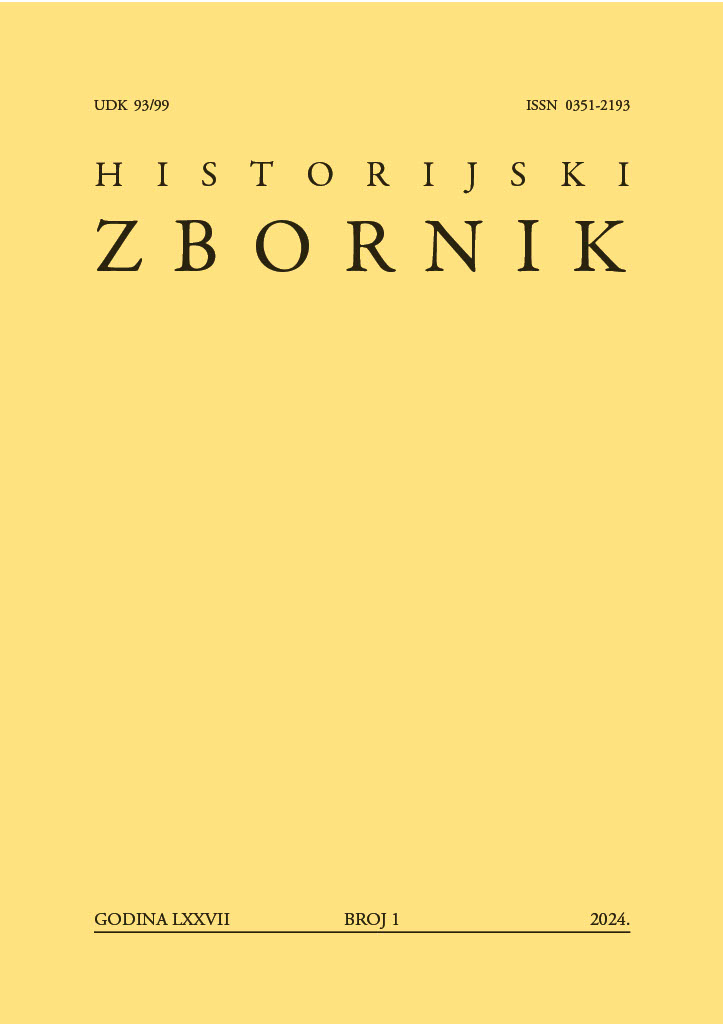Yugoslav communist retribution upon the “enemy of the people” in Gorski Kotar – the example of priest Stjepan Horžić
DOI:
https://doi.org/10.59412/hz.77.1.4Keywords:
World War II; Gorski Kotar; Mrkopalj; Communist Party of Yugoslavia; repression; Catholic Church; Stjepan HoržićAbstract
In historiography and even more so in the public sphere, the Gorski Kotar region has been portrayed as an area where the population during the World War II almost unreservedly supported the People's Liberation Movement led by the Communist Party of Yugoslavia. On the other hand, both during the war and in the post-war period, numerous people lost their lives due to the repression of the Yugoslav communists. Based on archival sources, the published and unpublished testimonies of contemporaries, the newspaper reports, and journalistic and scientific literature, this paper refutes the indictment and the death sentence from December 31, 1944 against Stjepan Horžić, the priest who served as a chaplain in the municipality of Mrkopalj and temporarily led the parishes in Ravna Gora and Vrbovsko. The Yugoslav communist court condemned Horžić as the "enemy of the people" who spread the "Ustasha ideology" and the belief in the victory of Nazi Germany and undermined the authority of the People's Liberation Movement in the Gorski Kotar region. However, numerous and diverse sources undoubtedly indicate that Horžić's work did not go beyond the scope of the activities of a Catholic priest, and that he was executed because he was very successful in preventing the influence of the Yugoslav communists among the population of the municipality of Mrkopalj, especially children, youth and women. In other words, it was an ideological contest between Yugoslav communists and members of the clergy of the Catholic Church over the inhabitants of the municipality of Mrkopalj, especially the youth, in which the former side resorted to the use of violence in the most radical form - murder. Chaplain Stjepan Horžić was executed not because he was a "servant of the occupiers" and a "quisling", but because his work as a priest made him an obstacle to the establishment of the totalitarian rule of the Yugoslav communists in Gorski Kotar.
Published
Versions
- 2024-07-28 (2)
- 2024-07-28 (1)
How to Cite
Issue
Section
License

This work is licensed under a Creative Commons Attribution-NonCommercial 4.0 International License.
Copyright holders are the publisher Association for Croatian History and the authors.
Historical Journal is an Open Access journal. Users are allowed to read, download, copy, redistribute, print, search and link to material, and alter, transform, or build upon the material, or use them for any other lawful purpose as long as they attribute the source in an appropriate manner according to the Creative Commons licence CC BY-NC.
The papers published in Historical Journal can be deposited and self archived in the institutional and thematic repositories providing the link to the journal's web pages and HRČAK. Journal does not charge article processing charges (APC). The editors assume no responsibility for statements of fact or opinion made by contributors.

